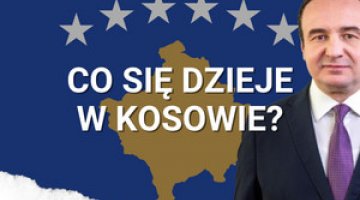The fall of the Kosovo government – a snap election in June
On 10 May, the parliament of Kosovo passed a vote of no confidence in the coalition government formed by the Democratic League of Kosovo (LDK), the Democratic Party of Kosovo (PDK) and representatives of national minorities. The no confidence motion was initiated by the nominally Social Democratic opposition party, the Initiative for Kosovo (Nisma) that was backed by other opposition groupings: the radical nationalist movement Vetëvendosje (Self-determination), the conservative Alliance for the Future of Kosovo (AAK) and a group of MPs who had previously supported the government. LDK was finally the only one to vote against the motion. The president of Kosovo, Hashim Thaçi, shortened the term of parliament after the vote and scheduled a snap election for 11 June.
Commentary
- The main reason behind the fall of the cabinet was tension inside the coalition over the ratification of the border agreement with Montenegro; this is a necessary condition for the EU to introduce a visa-free regime for citizens of Kosovo. The opposition and part of the deputies from PDK accused the government that ratification of the agreement would be accepting the loss of over 80 km2 of the country’s territory. The government, supported by the USA and the EU, defended the agreement with Montenegro, arguing that the shape of the border was the same as in the period of Yugoslavia. However, the Isa Mustafa cabinet has faced the risk of turbulence since its formation in 2014. It was established in consequence of a compromise which the USA and EU member states forced on the two largest parties (PDK and LDK) which are the main rivals in the struggle for power even though there are no major differences in their respective agendas.
- Although the poor condition of the economy, nepotism and corruption are Kosovo’s main problems, the main topic of the election campaign will be the policy towards Serbia and Montenegro. The opposition is accusing the government of being overly pliant in the dialogue with Serbia which is taking place under the patronage of the EU. Political emotions are provoked especially by the issue of the Community of Serb Municipalities, i.e. the status and the scope of the competences the municipalities inhabited predominantly by ethnic Serbs would gain (around 5.5% of Kosovo’s population). The opposition’s stance is shared by a large proportion of Kosovar Albanians who fear that Pristina might lose sovereignty over part of the country.
- The disintegration of the government coalition and the snap election mean further complications in relations between Serbia and Kosovo at least until a new government of Kosovo is formed. Public sentiment, including dislike of the deal with Serbia and Montenegro, will contribute to boosting support for the opposition, in particular the most radical Vetëvendosje. AAK will also be boosted by this due to the fact that its leader, Ramush Haradinaj, has the reputation of being a national hero since he was detained in France under a Serbian arrest warrant (the case ended with the Serbian request for extradition being rejected). In the election campaign, both the opposition and the members of what until recently was the government coalition will play the Serbian card. The tension between Pristina and Belgrade which has been ongoing since the beginning of this year will contribute to this (including the dispute over the Serbian train entering Kosovo and the dispute over the wall in Kosovska Mitrovica). Another subject of dispute between Serbia and Kosovo that will be used in the election campaign will be the idea of transforming the Kosovo Security Force into a regular army. All the groupings in Kosovo support this idea but they disagree over the way it should be put into effect. Nationalist tones may lead to further tension being provoked between various ethnic groups, especially in northern Kosovo.




